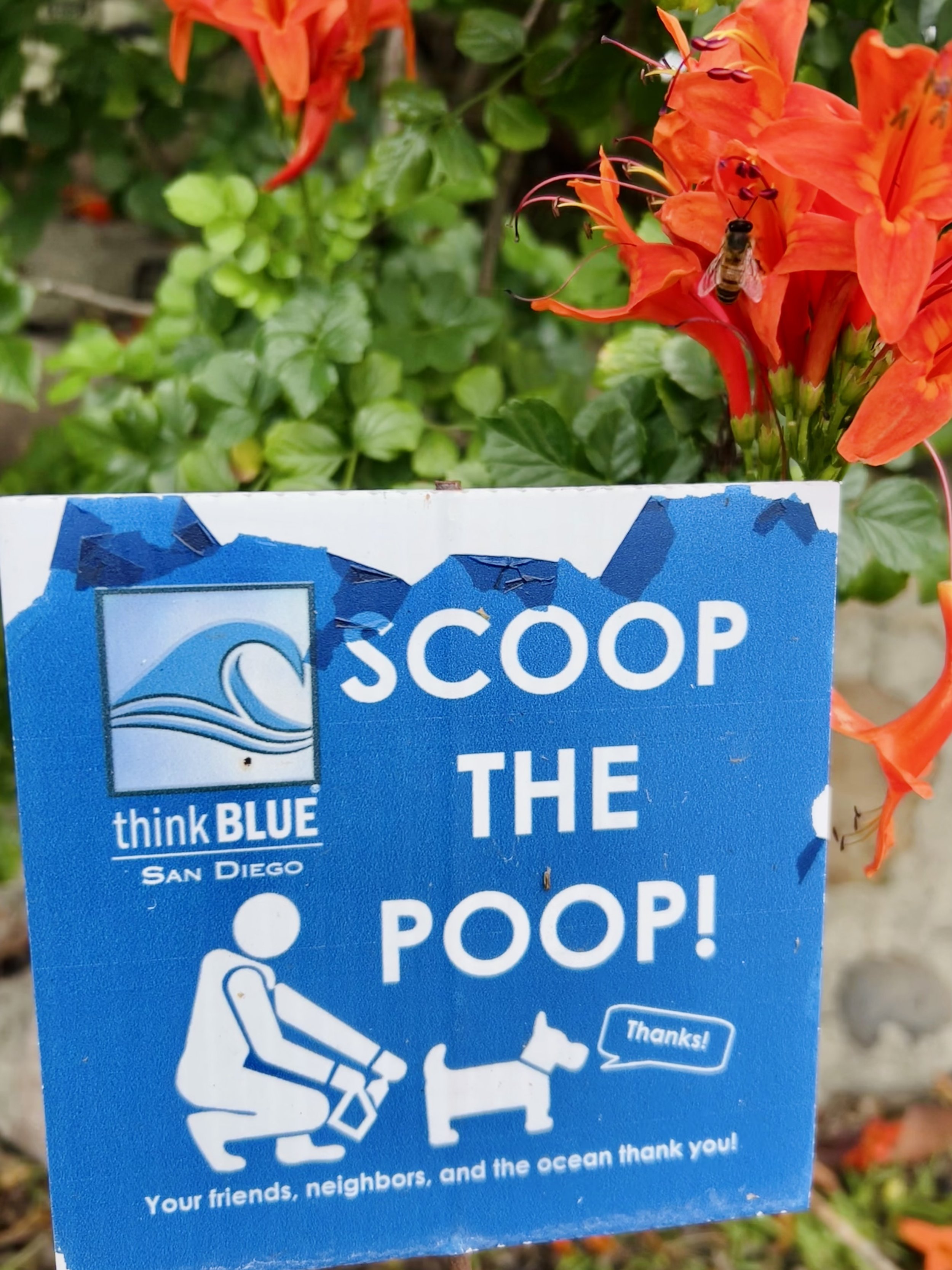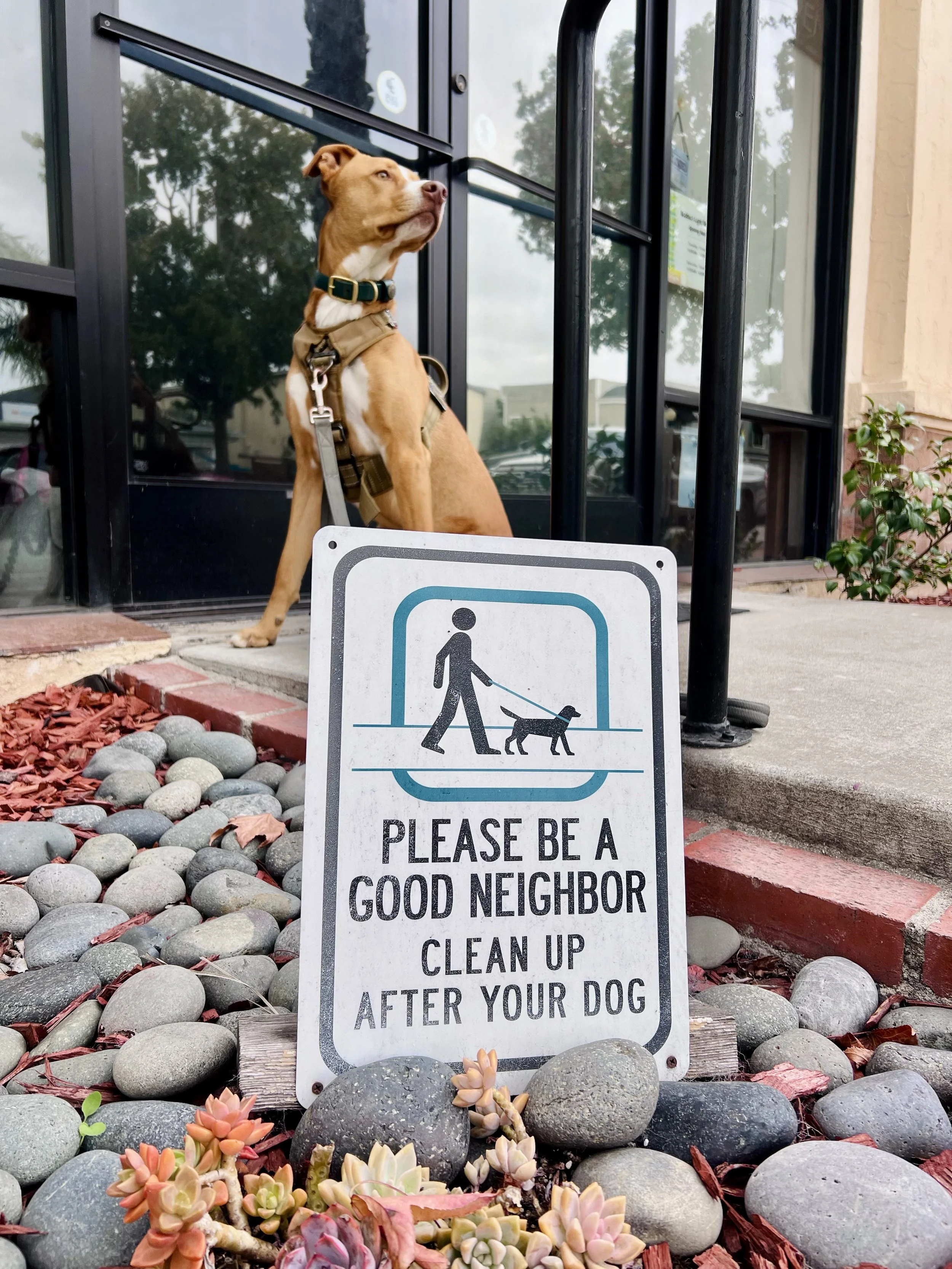The Scoop on Dog Poop: How to Be a Better Neighbor
Rule #1: Pick it up—every time, everywhere.
No matter where your dog goes, whether in a public park or even in your own backyard, it is your legal responsibility to immediately clean it up. It’s an easy but important act for our community.
According to the City’s Stormwater Fact Sheet, the typical dog contributes 180-274 pounds of waste per year. Multiply that by an estimated 600,000 dogs in San Diego, and we’re talking about roughly 136 million pounds of poop per year. Left unattended, that waste washes into storm drains and straight into our ocean—contaminating beaches, polluting drinking water, and harming marine animals and other wildlife. Dog waste isn’t fertilizer; it’s toxic runoff.
Rule #2: Respect private property.
Your dog’s “business” is never someone else’s responsibility. Yards are private property, and letting your dog relieve itself there without permission is trespassing, plain and simple. Remember, empathy is a two-way street. It’s great when property owners understand that our neighborhood doesn’t have a lot of grass space for dogs. We don’t have a safe, fenced dog park either. Even the best-trained dogs can suddenly stop, squat, and surprise us. They’re dogs, not machines! (Unfortunately, sometimes that happens.) When a surprise happens, apologize, clean up, and let’s all move on gracefully.
Rule #3: Be aware of the parkway zone.
That strip between the road and the sidewalk has different names in different places. In San Diego, it’s called the parkway zone, and it’s part of the public right of way. Even though property owners usually maintain it, it’s fair game for dogs. But use common sense, okay? If someone has planted flowers or a garden, don’t let your dog mess it up.
Rule #4: Be prepared and responsible. Use the best management practices.
This includes keeping poop bags in many places so you’re always ready. Dispose of waste properly by bagging, tying, and putting it in a public (not private) trash bin or take it home to throw out.
Cleaning up after your dog isn’t just polite—it’s the law. Failing to do so can result in fines of up to $10,000 per day per violation for the illegal discharge of animal waste (San Diego Municipal Code §43.0304). More importantly, it’s an act of respect for our neighbors, our city, and the environment. “Stuff” happens, sure, but if we all act with empathy and responsibility, we’ll keep University Heights cleaner, friendlier, and far less… crappy.
Please note, nothing in this article should be construed as legal advice. Always do your own research and/or consult a qualified, licensed attorney about legal matters.


